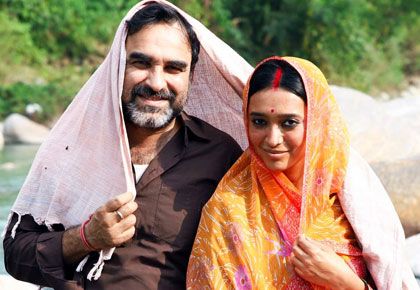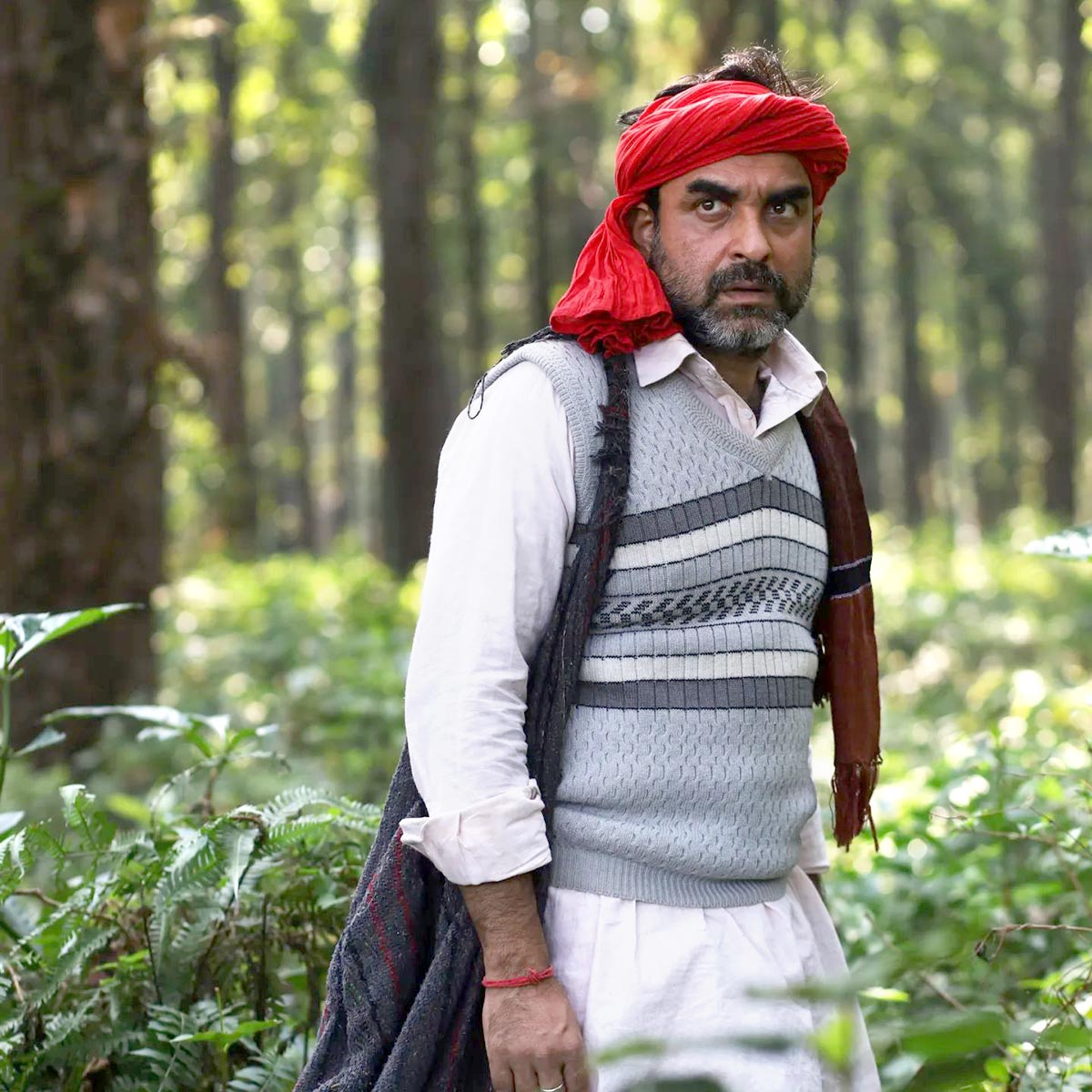Sherdil: The Pilibhit Saga is a boring, overlong, tale of an eccentric with delusions of leadership, sighs Deepa Gahlot.

In India, if there is a government scheme for the poor, there has to be a scam attached to it.
Srijit Mukherji's film Sherdil: The Pilibhit Saga grew out of real life incidents of elderly people from impoverished villages living by the wildlife reserve in Uttarakhand, being sent into the forest to be killed by tigers so that their families could claim compensation from the government.
The practice is appallingly macabre, ripe to be picked by a sympathetic film-maker, to either make The Ballad of Narayama (directed by Shohei Imamura, 1983) kind of elegiac tragedy, or a cruel, hard-hitting farce.
Mukherji manages neither -- his film is just a boring, overlong tale of an eccentric with delusions of leadership.
Gangaram (Pankaj Tripathi) is the sarpanch of Jhundao village that needs government help because wild animals destroy their fields.
His encounter with a bureaucrat yields nothing but a list of forms to be filled and certificates to be acquired from other departments.
Gangaram is illiterate and ignorant -- in this day and age, he has never encountered a cell phone or seen a computer.
For that matter, he does not even look like a starving villager, nor do his mother, wife (Sayani Gupta, dressed in rural chic, using the wrong all-purpose Bhojpuri-tinged dialect) and kids.
Gangaram comes across a poster offering a large sum of money for tiger kills, and decides to be a true leader and save his people by sacrificing himself.
He pretends he is dying of cancer, so that he can persuade his wife and friends to let him into the forest to be preyed on by a tiger.
What the film says is valid -- decreasing forest cover brings wild animals too close to human habitat, leading to a crisis -- but his script makes little sense.
Anyway, no man-eating tiger has attacked any Jhundao resident, and there are no other animals in sight around the village.
Strangely, Gangaram, who has grown up in the vicinity, is quite clueless about the forest and wanders around in awe like a kid in a zoo, with a song playing in the background.
The film reaches the no-redemption point, however, when he runs into a poacher, Jim Ahmed (Neeraj Kabi), named, as he explains, after the legendary hunter-turned-conservationist Jim Corbett; the long graying dreadlocks get no accompanying anecdote.
Ahmed is an expert tracker, so Gangaram extracts a promise that if they come across a tiger, Jim will let it kill him first, before shooting it, and then send up a flare to inform his village of his death.
The Gangaram-Jim friendship throws up gems about how religions and their diet restrictions do not matter much when everything is eventually excreted; this when they are squatting in the forest, and taking a crap with accompanying sound effects.
The director's idea of humour is way below juvenile.
The absurdities pile up and the film goes on long after the message has been delivered and underlined several times.
The forest (north Bengal standing in for Uttarakhand) is beautifully shot (Tiyash Sen), which is the only commendable thing about this film.
Otherwise, it is a waste of a good idea and a waste of two competent actors.











